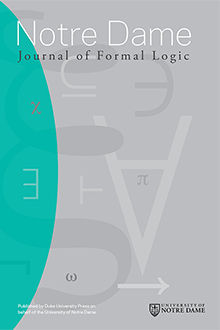Logical inferentialists contend that the meanings of the logical constants are given by their inference rules. Not just any rules are acceptable, however: inferentialists should demand that inference rules must reflect reasoning in natural language. By this standard, I argue, the inferentialist treatment of quantification fails. In particular, the inference rules for the universal quantifier contain free variables, which find no answer in natural language. I consider the most plausible natural language correlate to free variables—the use of variables in the language of informal mathematics—and argue that it lends inferentialism no support.
References
[2] Dummett, M., Frege: Philosophy of Mathematics, Harvard University Press, Cambridge, Mass., 1991. MR1154309 0981.03009[2] Dummett, M., Frege: Philosophy of Mathematics, Harvard University Press, Cambridge, Mass., 1991. MR1154309 0981.03009
[4] Negri, S., and J. von Plato, Structural Proof Theory, with Appendix C by A. Ranta, Cambridge University Press, Cambridge, 2001. MR1841217 1113.03051[4] Negri, S., and J. von Plato, Structural Proof Theory, with Appendix C by A. Ranta, Cambridge University Press, Cambridge, 2001. MR1841217 1113.03051
[7] Rosser, J. B., Logic for Mathematicians, McGraw-Hill, New York, 1953. MR54531 0068.00707[7] Rosser, J. B., Logic for Mathematicians, McGraw-Hill, New York, 1953. MR54531 0068.00707





